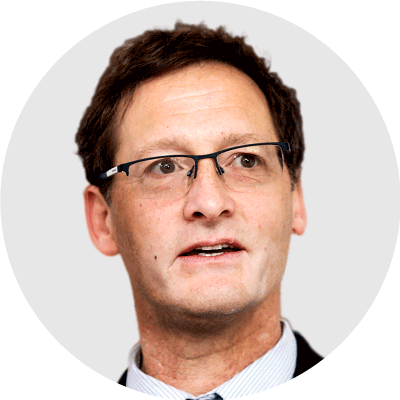Institute for War and Peace Reporting | Giving Voice, Driving Change
Promoting Free Expression
STRENGTHENING ACCOUNTABILITY
Building Inclusive Societies
Global Voices
-
Armenia
Some villages have been divided in two by new boundaries. -
Karabakh
Many villages have become border settlements, with no buffer zone. -
Kazakstan
President’s party wins again as pressure grows on independent observers and opposition forces. -
Armenia, Karabakh
Officials warn that historic sites in areas under Baku’s control risk damage. -
Karabakh
While their visible presence is reassuring, questions still remain over longer-term solutions.

We are currently seeking passionate people committed to fighting the Covid-19 infodemic to join the programme's second cohort of participants.
DEADLINE EXTENDED: 26 January, 2021.

As 2020 draws to a close, at IWPR we are grappling with a global challenge that in its way is even more grave than coronavirus.

Anthony Borden IWPR Executive Director
21 December 2020
Against the loss of life and economic devastation suffered in the pandemic, the world can at least take hope from science and the emerging vaccines. Yet another “new normal” has emerged with long-term consequences potentially even more dangerous – disinformation. IWPR is facing this challenge head-on, and we hope you will support us in this essential effort.
 Driven by state powers and extremist operators, and fuelled by unregulated, conflict-driving social media, disinformation spreads even more quickly than a virus.
Driven by state powers and extremist operators, and fuelled by unregulated, conflict-driving social media, disinformation spreads even more quickly than a virus.
It divides societies and fuels violent radicalism, undermining democracy and faith in government. It also directly impacts public health – particularly the COVID-19 response – and other areas of public policy.
In a challenging year, I have never been more proud of IWPR’s staff, partners and beneficiaries around the world. COVID-19 has made more acute the challenges of government repression, clampdowns on women’s and minority rights, and restrictions on freedom of expression. Not only has IWPR adjusted to lockdown, staff have found creative solutions to delivering frontline programming.
Across more than 30 countries, IWPR is combatting disinformation – building up local media and civil society, supporting and producing reliable content, and building local coalitions for change. In Cuba, IWPR is building a new generation of independent voices. In Iraq, we train journalists to combat the impact of irresponsible social media. In a special programme, IWPR is partnering with technology, media and international institutes (including Poynter, Brookings and Hoover) to challenge the “sharp power” influence of China around the world.
For a brief perspective of IWPR programming, I invite you to view the video below from 3 of our local partners, highlighting the impact of IWPR’s work in: Lebanon, Central Asia and Nigeria.
At our recent IWPR International Board meeting, IWPR board members – FT editor Gillian Tett, award-winning author George Packer, and former New York Times editor Scott Malcomson – discussed the impact of the US elections on American foreign policy. You can watch a short summary below.
IWPR depends on donors, foundations and private supporters to help us continue to expand our counter-disinformation efforts. As a friend and supporter of IWPR, we would be so grateful for your gift to help us combat this global scourge.
ProjectsHighlights of IWPR programming in three-dozen countries around the world.
IWPR in the News
AMNESTY INTERNATIONAL
Cuba: Government must release journalist and prisoner of conscience Roberto Quiñones Haces
Taarifa
Parading Prisoners Of War Before Press Violates Geneva Convention
The National
Conflict journalism needs a code of ethics and needs it now
The Guardian
Yes, Iranians can protest against both US intervention and their government
The National
Can an outsider get to the heart of a story as well as someone personally affected?
Haaretz
Opinion: Why Are Israel's Top Holocaust Scholars So Willing to Deny This Genocide?
Global Conference for Media Freedom
Defending Media Freedom
Newsweek
The U.S. Killed 300 Iranian Citizens. Americans Don't Remember This—But Iranians Do
Dutch Postcode Lottery
She was injured in an attack and is threatened, but the Afghan journalist Mina Habib continues to write critical stories.
In Memoriam
IWPR TOPICS
Diplomacy Media Rule of Law Economy Women Elections Women's rights Protests Conflict resolution Health War crimes Human rights Conflict ChildrenIWPR's Satellite Sites
AFRICA
![]() Fake Watch Africa fakewatch.africa
Fake Watch Africa fakewatch.africa
EUROPE & EURASIA
![]() Central Asian Bureau for Analytical Reporting cabar.asia
Central Asian Bureau for Analytical Reporting cabar.asia
![]() Caucasus Regional Journalists Network reporter.ge
Caucasus Regional Journalists Network reporter.ge
![]() Caucasus: Women for Peace women4peace.net
Caucasus: Women for Peace women4peace.net
MENA
![]() Syria Stories syriastories.net
Syria Stories syriastories.net
MENA/LATIN AMERICA
Opportunities
Apply now
Notice of Funding Opportunity
Through IWPR's Cooperative Agreement with the Department of State, this full and open competition announcement invites organisations to submit a proposal for funding via a subaward agreement.
DEADLINE: 5 February, 2021.
PRC – Latin America Multi-Media Creation
Through the Institute for War and Peace Reporting’s Cooperative Agreement with the Department of State, this full and open competition announcement invites organisations to submit a proposal for funding via a subaward agreement.
DEADLINE: 6 February, 2021.

Disinformation, fake news and propaganda are emerging as among the most powerful threats of the modern age. Facilitated by new forms of media and spread by governments and non-state actors alike, these potent tools have far-reaching consequences for human rights and media freedoms around the world.




















